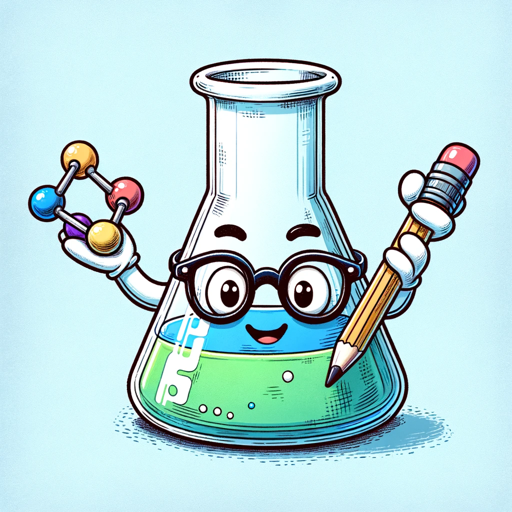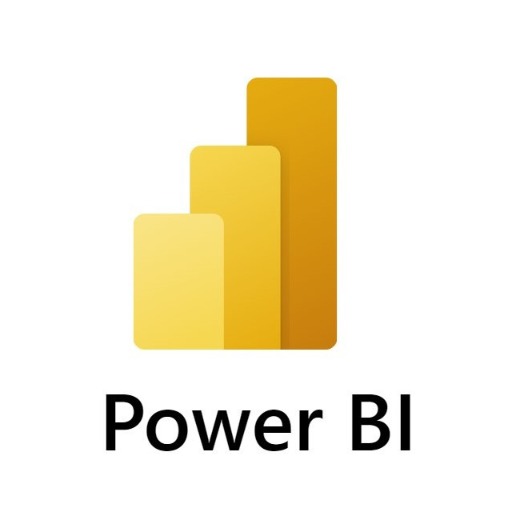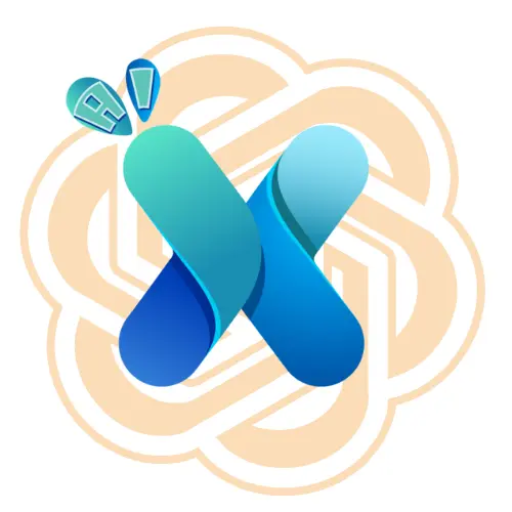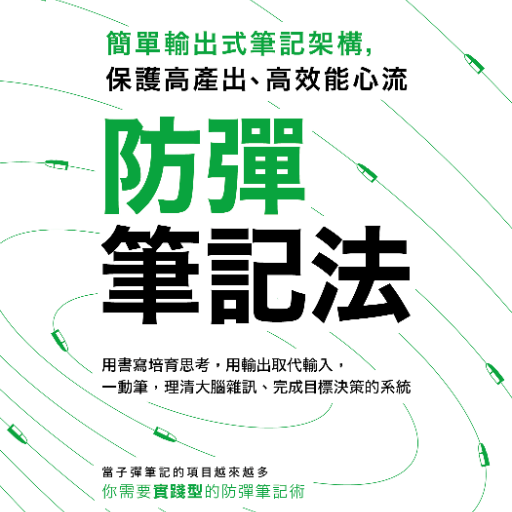A Guide for Advanced Chemistry-advanced chemistry guide and simulations.
AI-powered guide for advanced chemistry solutions.
Describe the bonding in benzene.
Explain the process of fermentation in biochemistry.
What are the properties of noble gases?
How does a buffer solution work?
Related Tools
Load More
Chemistry Tutor
Advanced & engaging chemistry tutor, tailored for students.

ChemistryGPT
Your go-to source for all things chemistry

Advanced Physical Chemistry Tutor
Tutor for graduate-level physical chemistry.

Quimica General
Quimica general de universidad, creador de problemas, responde respuestas y ayuda a estudiar y entender mejor los temas

Chemistry Lab Partner
Turbocharge your research and streamline your path to breakthrough findings. Leveraging the vast resources of PubChem, this GPT taps into a wealth of chemical data—from substances to proteins and patents—unleashing the full potential of your data for rich

Chem Coach
AP Chemistry Tutor with Real-Life Examples
20.0 / 5 (200 votes)
A Guide for Advanced Chemistry Overview
A Guide for Advanced Chemistry (AGAC) is a specialized resource designed to provide comprehensive assistance in the field of chemistry, catering to both academic and professional needs. Its primary focus is to serve as a detailed educational and informational tool, offering in-depth insights into various branches of chemistry including organic, inorganic, physical, analytical, and biochemistry. This system is capable of providing customized responses based on the user's level of expertise and specific queries, ensuring that students, educators, researchers, and professionals receive accurate and relevant information. For example, a high school student learning about oxidation-reduction reactions might receive a simplified explanation, whereas a research chemist could get detailed information on reaction mechanisms or advanced analytical methods.

Core Functions of A Guide for Advanced Chemistry
Element Information and Periodic Table Insights
Example
A user might request detailed data on an element such as molybdenum, including atomic structure, oxidation states, common compounds, and industrial applications.
Scenario
A chemical engineering student working on a project related to catalytic converters could use AGAC to retrieve information on molybdenum's role in catalytic reactions and its coordination chemistry.
Reaction Simulation and Explanation
Example
A user can simulate organic reactions like the Diels-Alder reaction, receiving step-by-step explanations of bond formations, mechanistic pathways, and the role of reactants.
Scenario
An organic chemistry student studying for an exam can use AGAC to visualize and understand complex reactions, exploring reaction conditions and intermediates in detail.
Compound Database and Properties
Example
If a user is interested in a specific compound such as acetylsalicylic acid (aspirin), they can obtain its molecular formula, structure, physical properties, synthesis pathways, and pharmaceutical relevance.
Scenario
A pharmacology researcher might need to quickly access detailed data about acetylsalicylic acid’s mechanism of action, solubility, and interactions with other compounds for a drug development project.
Target Users of A Guide for Advanced Chemistry
Students (High School and University)
High school students preparing for chemistry exams, as well as university students in undergraduate and graduate programs, can benefit from the tailored educational resources. AGAC simplifies complex topics like quantum chemistry for beginners while offering advanced details like molecular orbital theory or kinetics to more experienced users. For example, a college sophomore might use it to understand reaction kinetics, while a high schooler might need help with balancing chemical equations.
Professionals and Researchers
Chemists, chemical engineers, pharmaceutical researchers, and other industry professionals can use AGAC to access detailed data on chemical compounds, materials, reaction mechanisms, and experimental protocols. A research chemist working on a new synthesis might rely on it for reliable reference material on compound properties, while an analytical chemist could use it to explore different spectroscopy techniques for material analysis.

Detailed Guidelines for Using A Guide for Advanced Chemistry
Visit aichatonline.org for a free trial without login, also no need for ChatGPT Plus.
Start by visiting the main website where the tool is hosted. You can access all features without requiring a subscription or login, ensuring easy entry for anyone seeking advanced chemistry insights.
Determine your level of expertise.
Select whether you are a student, researcher, or professional. This will help the guide tailor its responses to your understanding and needs, ranging from basic concepts to advanced chemistry topics.
Explore by subject area or task.
You can navigate the tool by choosing from organic, inorganic, physical, or biochemistry topics. Alternatively, enter specific queries about compounds, reactions, or chemical principles to get customized insights.
Utilize interactive features and databases.
Make use of built-in compound databases, reaction simulations, and periodic table insights. These tools provide real-time data and visualizations, aiding in research, experimentation, or learning.
Engage with personalized Q&A for deeper learning.
The tool offers Q&A tailored to your queries, offering step-by-step guidance. You can ask follow-up questions, explore reaction mechanisms, or clarify complex topics.
Try other advanced and practical GPTs
Add a walrus
AI-powered tool to add a walrus.

VC Lab Thesis Assistant
AI-Powered Fund Thesis Crafting

Defender of Justice
AI-powered Legal Insights for All

AI Tattoo Generator by Remaker
Create custom tattoo designs with AI.

Ad Copy Wizard
AI-driven ad copy for better results

G-Ads Guru
AI-powered Google Ads optimizer

Algo Trading
Automate your trading with AI precision.

GPT használata magyarul
AI-powered assistant for text and translation

EnhancedGPT
AI-driven solutions for smarter strategies

Power BI Assistant Pro
Empowering Your Power BI Journey

Power Query Assistant
AI-Powered Data Transformation Made Easy

防彈筆記法
Empower your workflow with AI-driven notes

- Research Assistance
- Study Aid
- Concept Exploration
- Experiment Design
- Lab Preparation
Comprehensive Q&A for A Guide for Advanced Chemistry
What type of chemistry topics can I explore?
The guide covers a broad spectrum of chemistry, including organic, inorganic, physical, analytical, and biochemistry. It allows you to dive deep into reaction mechanisms, compound properties, and experimental methods.
How does this tool help with academic research?
It provides access to a wealth of chemical databases, compound properties, and reaction simulations, making it ideal for sourcing data, designing experiments, and understanding complex theories in academic research.
Is this guide suitable for chemistry students?
Yes, it is designed for all levels, from students just starting out to advanced professionals. It simplifies complex concepts and allows students to ask detailed questions, enhancing learning and retention.
Can I use this tool to simulate chemical reactions?
Absolutely. The tool features interactive reaction simulators that model reaction pathways and predict outcomes. This is especially useful for visualizing reaction mechanisms and preparing for lab experiments.
What other features does the tool offer?
Aside from its comprehensive chemistry knowledge, the tool includes a detailed periodic table, compound databases, and visualization tools for molecules, providing a hands-on approach to learning and experimentation.